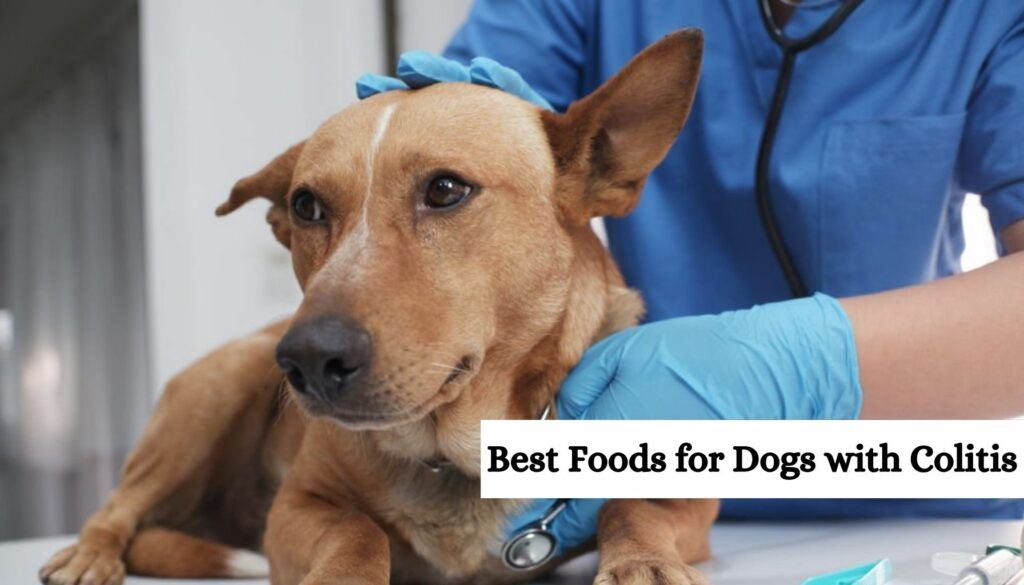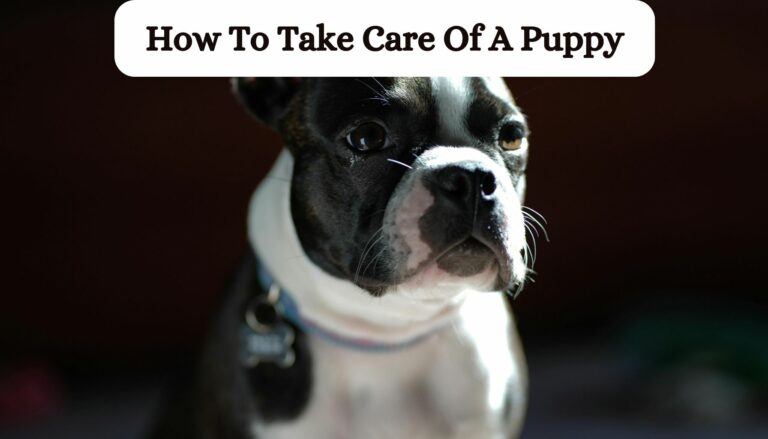When dogs have colitis, a careful diet can help ease symptoms and improve their comfort. Colitis is an inflammation of the colon, leading to digestive issues like diarrhea and abdominal discomfort.
Adjusting their diet is one of the best ways to manage colitis, helping to reduce inflammation and promote smoother digestion. Here’s a guide to the best foods for dogs with colitis, what to avoid, and tips for supporting your dog’s health.

Article Overview:
What is Colitis?
Colitis is the inflammation of the colon, the part of the digestive system that absorbs water and forms waste. When inflamed, the colon struggles to perform its role, leading to symptoms like diarrhea, discomfort, and straining during bowel movements. Colitis in dogs can be caused by infections, allergies, stress, or a poor diet. While some cases are acute and temporary, others may be chronic and need long-term management.
How The Diet Helps with Colitis
Diet is one of the simplest and most effective ways to treat colitis in dogs. A diet tailored for colitis aims to reduce irritation and promote easier digestion. Low-fat, low-fiber foods often work best as they are gentle on the stomach and intestines. And also good for the overall health.
Ingredients with anti-inflammatory properties, like omega-3 fatty acids, can also help soothe the digestive tract and reduce the frequency of flare-ups. Overall, feeding the right diet can make a noticeable difference in your dog’s well-being and comfort.

Best Foods for Dogs with Colitis
- Easily Digestible Proteins: Proteins like chicken, turkey, and fish are great options for dogs with colitis. These proteins are gentle on the stomach, providing the energy and nutrients your dog needs without putting too much strain on their system. Fish, in particular, has the added benefit of containing anti-inflammatory omega-3 fatty acids, which can further help soothe their gut. Be sure to cook these proteins simply, without added seasonings or oils, to keep things as easy to digest as possible.
- Low-Fiber, Low-Fat Carbohydrates: Low-fiber, low-fat carbs like white rice and potatoes are often recommended for dogs with colitis because they’re mild and easy to digest. White rice, in particular, is known for helping firm up stools, which can be a relief for both you and your dog. Potatoes are also gentle on the stomach and provide a nice source of energy. Avoid adding butter, oils, or spices to keep them dog-friendly.
- Probiotic-Rich Foods: Probiotics can work wonders for gut health by promoting a balanced microbiome, which is especially helpful for dogs with colitis. Adding a little dog-safe yogurt (plain, unsweetened, and in moderation) can introduce these good bacteria into your dog’s digestive system. Alternatively, you can find probiotic supplements made specifically for dogs. Probiotics not only improve digestion but can also strengthen their immune system, making it easier for them to recover from flare-ups.
- Omega-3-Rich Options: Foods rich in omega-3 fatty acids, like certain fish oils, are known for their anti-inflammatory properties, which can be a game-changer for a dog with colitis. Omega-3s help reduce inflammation throughout the body, including in the digestive tract. However, always consult your vet before introducing fish oils to make sure you’re providing the right dose for your dog’s size and condition.
What Not to Feed Dogs with Colitis
- High-Fat Foods: Fatty foods may be tasty, but they can wreak havoc on a dog’s digestive system, especially one with colitis. High-fat foods like fatty cuts of meat, certain treats, and human foods with added fats (like cheese or butter) can trigger symptoms and should be avoided. Stick to lean proteins and avoid any extras that may add unnecessary fat.
- Dairy Products: Many dogs have trouble digesting dairy, which can lead to bloating, gas, and discomfort. For dogs with colitis, dairy can be even more irritating and can contribute to flare-ups. Avoid giving your dog dairy products like cheese, milk, or cream.
- High-Fiber Vegetables: While fiber is generally good, too much can upset the balance for a dog with colitis. Vegetables high in fiber, like broccoli, cabbage, or beans, can be challenging for them to digest. It’s best to stick to low-fiber vegetables if you want to add some variety to their diet.
- Artificial Ingredients and Preservatives: Processed foods with additives can be harsh on the digestive system. Foods with artificial preservatives, colors, and fillers can aggravate colitis symptoms, so stick with whole, natural ingredients that you know are safe and easy for your dog to digest.
FAQ Section
Does colitis in dogs ever go away?
Colitis can be managed, and symptoms can improve significantly with diet and lifestyle adjustments. In some cases, colitis may go away, especially if it’s caused by a specific infection or temporary irritation. However, for chronic cases, it may not go away entirely, but symptoms can be controlled with the right care and diet.
How do vets treat colitis in dogs?
Vets typically approach colitis treatment with a combination of dietary changes, probiotics, and sometimes medication if symptoms are severe. In cases caused by infections, antibiotics may be used. Your vet may also recommend a special diet designed to reduce inflammation and soothe the digestive tract.
Can chicken cause colitis in dogs?
While chicken is generally safe, some dogs can have sensitivities or allergies to it, which can trigger colitis symptoms. If your dog seems to react poorly to chicken, you might try other easily digestible proteins like turkey or fish tox see if that helps improve their symptoms.
Are carrots good for dogs with colitis?
Carrots can be a good treat for dogs with colitis, but they should be given in moderation. While carrots are low in fat and provide valuable nutrients like beta-carotene and fiber, their fiber content can sometimes be a bit much for dogs with sensitive stomachs.
If you want to include carrots, try cooking them lightly first to make them easier to digest, and offer small amounts to see how your dog responds.
Is salmon good for a dog with colitis?
Yes, salmon can be beneficial for dogs with colitis due to its high omega-3 fatty acid content, which has anti-inflammatory properties. These fatty acids can help reduce inflammation in the digestive tract, which may relieve colitis symptoms.
Be sure to cook the salmon without added oils or seasonings, as raw salmon can contain parasites that are harmful to dogs. Always check with your vet to confirm portion sizes based on your dog’s specific needs.
How do you comfort a dog with colitis?
Comforting a dog with colitis involves providing a calm environment and a gentle, digestible diet. Avoid stressful situations, as stress can worsen colitis symptoms. Offering a warm, comfortable space for them to rest can also help.
Stick to a diet of easy-to-digest foods and provide fresh water to keep them hydrated. If they seem uncomfortable, consult your vet about safe options for symptom relief, such as probiotics or other treatments designed to soothe their digestive system.






